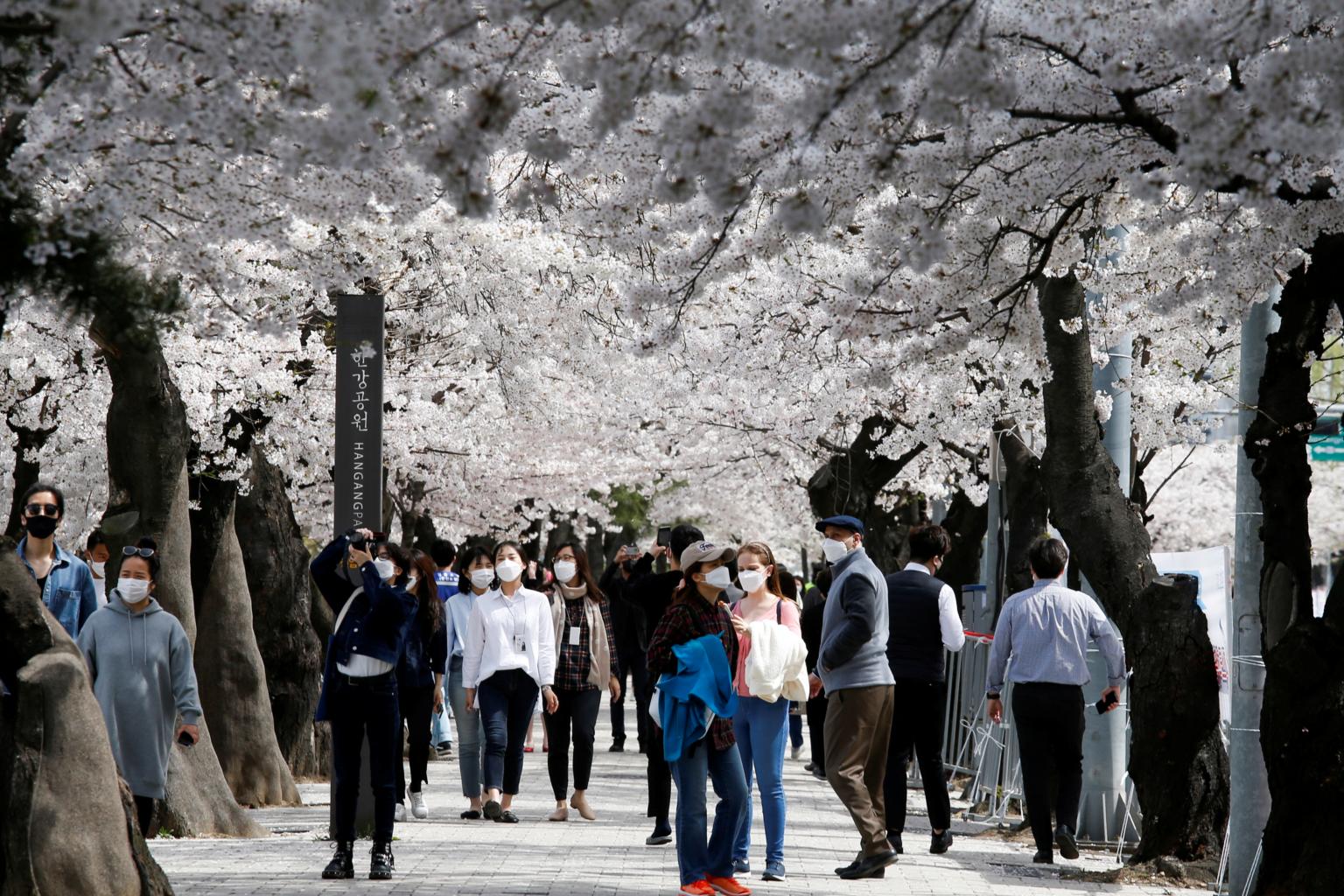South Korea's minimum wage fight heats up in President Moon's last year
Sign up now: Get insights on Asia's fast-moving developments

Workers say the Covid-19 crisis has already put off long-overdue wage raises and made inequality worse.
PHOTO: REUTERS
SEOUL (BLOOMBERG) - The minimum wage is hotly contested every year in South Korea. This year the issue is more fraught than usual.
Businesses say they can't afford to pay much more after the drubbing they took during the pandemic. Workers say the crisis has already put off long-overdue raises and has made inequality worse. They may all have a point.
Meanwhile, President Moon Jae-in's legacy hangs in the balance.
Elected on a platform of raising living standards for ordinary people, Mr Moon is now in the last year of his term and although he has made progress he is still far short of delivering the 10,000 won (S$11.81) per hour minimum wage he promised.
Mr Moon took office in 2017 pledging to raise minimum pay by the equivalent of about US$3 (S$4.06). Big bumps in 2018 and 2019 got workers a little less than two-thirds of the way there, but progress mostly stopped with the pandemic.
At about US$7.60, an hour's work at today's minimum wage is not enough to buy two McDonald's Big Macs at Korean prices.
Now, with the recovery picking up and inflation rising, labour unions are demanding a whopping 20 per cent hike. If realised, Mr Moon will just about hit his target.
But workers are not likely to get all or even most of what they are asking for when the wage commission makes its decision in the coming weeks. The group representing businesses in the negotiations is arguing for a 0.2 per cent raise.
Small companies, which employ most of the country's lowest paid workers, say they are still struggling with South Korea's virus restrictions and have not benefited from the booming exports that are helping big companies like Samsung Electronics or Hyundai Motor.
One think tank run by the Federation of Korean Industries, a prominent business group, says meeting Mr Moon's wage target could trigger as many as 300,000 job losses.
That is the kind of argument that business groups tend to make, but whether higher wages really lead to less hiring is an open question.
The 16 per cent minimum wage hike pushed through by Mr Moon in 2018 is often cited as the reason job growth slowed that year. Yet employment made a comeback in 2019, despite an 11 per cent increase in the minimum wage that year.
In the two years taken together, the economy actually added businesses and jobs, according to the Korean Confederation of Trade Unions.
Another open question is whether raising the minimum wage is an effective way to drive the income-led growth Mr Moon has championed to broaden prosperity and reduce the country's reliance on exports.
Many analysts argue the strategy has not been successful, but a comparison of South Korea's consumption growth with the economy's overall growth suggests that consumers did somewhat better after the wage hikes of 2018 and 2019 than before them. Spending collapsed in 2020, of course, but that was due to the pandemic.
With the minimum wage this year up just marginally from 2020's level, advocates of a substantial hike now have a different case to make. Overall pay has risen about 4 per cent so far this year, outpacing gains in South Korea's minimum wage for the first time in data going back to 2011.


